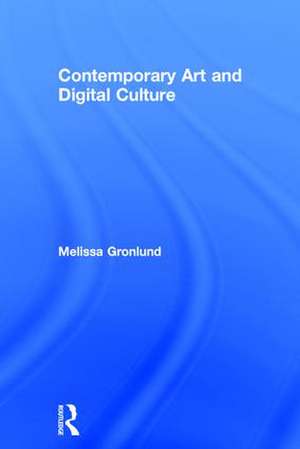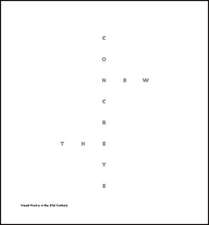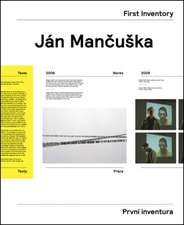Contemporary Art and Digital Culture
Autor Melissa Gronlunden Limba Engleză Hardback – 12 dec 2016
This book looks at how contemporary art addresses digitality, circulation, privacy, and globalisation, and suggests how feminism and gender binaries have been shifted by new mediations of identity. It situates current artistic practice both in canonical art history and in technological predecessors such as cybernetics and net.art, and takes stock of how the art-world infrastructure has reacted to the internet’s promises of democratisation.
An invaluable resource for undergraduate and postgraduate students of contemporary art – especially those studying history of art and art practice and theory – as well as those working in film, media, curation, or art education.
Melissa Gronlund is a writer and lecturer on contemporary art, specialising in the moving image. From 2007–2015, she was co-editor of the journal Afterall, and her writing has appeared there and in Artforum, e-flux journal, frieze, the NewYorker.com, and many other places.
| Toate formatele și edițiile | Preț | Express |
|---|---|---|
| Paperback (1) | 253.20 lei 6-8 săpt. | |
| Taylor & Francis – 8 dec 2016 | 253.20 lei 6-8 săpt. | |
| Hardback (1) | 821.94 lei 6-8 săpt. | |
| Taylor & Francis – 12 dec 2016 | 821.94 lei 6-8 săpt. |
Preț: 821.94 lei
Preț vechi: 1103.98 lei
-26% Nou
Puncte Express: 1233
Preț estimativ în valută:
157.30€ • 163.62$ • 129.86£
157.30€ • 163.62$ • 129.86£
Carte tipărită la comandă
Livrare economică 15-29 aprilie
Preluare comenzi: 021 569.72.76
Specificații
ISBN-13: 9781138936386
ISBN-10: 1138936383
Pagini: 230
Ilustrații: 43
Dimensiuni: 156 x 234 mm
Greutate: 0.57 kg
Ediția:1
Editura: Taylor & Francis
Colecția Routledge
Locul publicării:Oxford, United Kingdom
ISBN-10: 1138936383
Pagini: 230
Ilustrații: 43
Dimensiuni: 156 x 234 mm
Greutate: 0.57 kg
Ediția:1
Editura: Taylor & Francis
Colecția Routledge
Locul publicării:Oxford, United Kingdom
Public țintă
Postgraduate and UndergraduateCuprins
Introduction: Beyond the Visible Image
Chapter One: Reproducibility and Appropriation in the Twentieth Century: Precursors to the Digital Age
Chapter Two: Cybernetics and the Posthuman: The Emergence of Art Systems
Chapter Three: Challenges to Immateriality: Posthumanist Thought and Digitality
Chapter Four: Violence and the Surveilled Internet
Chapter Five: Identity, Language and the Body Online
Chapter Six: The Art World Infrastructure Post-Internet
Chapter One: Reproducibility and Appropriation in the Twentieth Century: Precursors to the Digital Age
Chapter Two: Cybernetics and the Posthuman: The Emergence of Art Systems
Chapter Three: Challenges to Immateriality: Posthumanist Thought and Digitality
Chapter Four: Violence and the Surveilled Internet
Chapter Five: Identity, Language and the Body Online
Chapter Six: The Art World Infrastructure Post-Internet
Recenzii
"Contemporary Art and Digital Culture succeeds in tracing a lineage for contemporary digital art and in more broadly contextualizing its defining practices in digital culture."
- Lindsay LeBlanc, Prefix Photo Magazine
- Lindsay LeBlanc, Prefix Photo Magazine
Descriere
Contemporary Art and Digital Culture analyses the impact of the internet and digital technologies upon contemporary art in last fifteen years. Art production from the mid-2000s to the present has been, and continues to be, deeply inflected by social media and the rise of the internet as a mass medium, as well as by economic and political factors such as the financial crisis of 2008 and the ongoing conflicts in the Middle East.
This book is the first to provide a thorough historicisation of the current interest in networks and digitality, and takes stock both of canonical twentieth-century art history and technological predecessors such as cybernetics and net.art. It shows how art addresses identity, circulation, privacy, and globalization newly in the digital age, and how feminism and gender binaries have been shifted by new conceptions of identity. It also looks at the art market and art scholarship to show how the internet’s promises of democratization have been absorbed by the art world infrastructure.
This book will be of interest to students, undergraduate and postgraduate, in contemporary art, especially those studying history of art and art practice and theory. It will also be of interest to students of film and media as well those working in curation or art education.
This book is the first to provide a thorough historicisation of the current interest in networks and digitality, and takes stock both of canonical twentieth-century art history and technological predecessors such as cybernetics and net.art. It shows how art addresses identity, circulation, privacy, and globalization newly in the digital age, and how feminism and gender binaries have been shifted by new conceptions of identity. It also looks at the art market and art scholarship to show how the internet’s promises of democratization have been absorbed by the art world infrastructure.
This book will be of interest to students, undergraduate and postgraduate, in contemporary art, especially those studying history of art and art practice and theory. It will also be of interest to students of film and media as well those working in curation or art education.











